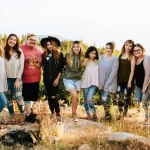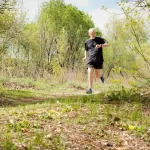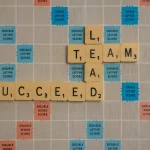I love getting older. I am 74 and life has never been better. But then I have good, secure pensions, my own home, a loving family, and I can still run a few kilometres without suffering a heart attack. And I have something equally precious; knowledge and experience acquired over decades. I started full-time paid employment at the age of 15, since when I never fully stopped working. Writing this article for you, is work. But it is my choice to do so. The point of writing it is not for income but to share my knowledge and experience with mostly younger people. And I have a lot to share. I have been learning for 74 years.
I also believe there has never been a greater need to share knowledge and wisdom. Why? Because there can be little doubt that humanity is facing a serious existential crisis – in truth, several existential crises, of which climate change is likely the deadliest. On the plus side we have advanced technology, notably AI, along with its offsprings, chatGPT, Google Bard, etc. But can AI save us? I’ve no idea, though it is obvious that the AI brain is now advancing far faster than the human brain – and humanity’s capacity to respond. Also on the plus side, we have an ageing global population. Millions of elderly people who, like me, have experience and knowledge to share – if we give them the opportunity to do so. Sure, the demographics for many countries, not least China, Japan, Italy, South Korea and large swaths of Eastern Europe, are pretty grim, but at least people are living longer and these older people are a vital human resource available to be tapped.
Another joy of getting older is having the opportunity to help young people reach their potential. To give you an example, during the past nine months I’ve been advising a female Vietnamese secondary school teacher (33 years old) on how to apply for a PhD at a prestigious New Zealand University. Two weeks ago, her application was accepted. She starts in November. For her, a life-changing experience now beckons. For me, one more young person I have guided, mentored, advised. I don’t ask for nor expect any monetary reward. Indeed, I don’t expect anything – well, maybe a bit of good karma in the next life.
So, we have a growing resource – older people with lifetimes of work and experience behind them.
And we have a growing need – younger people urgently needing guidance, support and knowledge.
How to match the two?
I’m not claiming to have the definitive answer to this vital question but I am going to present some basic, if simplified, suggestions.
Let me split the answer into three strategic approaches: Attitude, Culture and Practice.
1. Attitudinal Change:
Older People (aged 60+): Your attitudinal task is to remain positive, relevant, aware and optimistic. You are not much use to anyone if you are negative, inflexible, arrogant, cynical and out of touch. You should remember the past. But you should not live in it.
Young People (under 40): Your attitudinal task is to avoid ageism- imagining that anyone older than 40 is ‘past it’ and that anyone over 60 is waiting only to die. Old age is coming your way too.
Mid-life People: (40-60): You must recognise that these two decades are your best. You should aim to be fit, healthy, and be acquiring a lot of life and work experience. These are the decades when you will achieve what you were always capable of achieving. So no holding back – go for it. Be brave, be resolute, believe in yourself. But also, start to mentor younger people while always listening to those who are older and have something to offer. Don’t allow success to close your mind and your ears. And don’t treat failure as failure – treat it for what it is – an essential stepping-stone to success.
2. Cultural Change:
While I have surely personally benefited from Confucianism and the Asian respect for older people, I don’t go along with it wholeheartedly. Respect people for who they are, what they have achieved, how they are living, not for simply living a long time. I look around me and I see fantastic, highly capable young people around the world eager to make a positive difference, and I see a load of older people, still holding on to power, who should have been put out to pasture years ago.
We must not culturally elevate older people simply because they are older. Someone my age is not necessarily the fountain of all knowledge. At the same time, don’t privilege youth at the expense of the elderly. The young may well have energy, ambition and the capacity to work through the night supported only by endless cups of coffee, though anyone existing on 4 hours sleep is clearly not working at optimum efficiency. One thing age teaches you is how to live a more balanced life while remaining productive and creative.
3. Practical Change:
As I have written elsewhere*, I consider the key to success in any organisation to be Total Inclusivity because without this the organisation is losing its most valuable asset – human engagement and motivation and instead is generating discrimination, harm and mistrust.
Total inclusivity includes valuing and respecting people of all ages and across the generations. It is essential to have HR policies on avoiding ageism and ensuring diversity, equity, justice and inclusiveness regards recruitment, retirement, promotion, appraisal and continuous professional development. But all this policy must be reinforced by the practice of creating management and leadership teams that are cross-generational; not dominated by elderly people nor those under 30. Everyone contributes, everyone shares, everyone listens, everyone respects. This must be in place if the organisation is to utilise older-people’s knowledge and gain from their valuable insights. Don’t just listen exclusively to the powerful and the elderly. They can and must be challenged where appropriate. Use all the brains, not just the few.
Which brings us to retirement…
Any organisation that still has a strict and inflexible retirement age is living in the dark ages. Look around you; Trump, Biden, Xi Jinping, Erdogan, Murdoch, Buffet, Branson, Kissinger.
And let’s not forget the Rolling Stones and Bob Dylan! You may not like nor respect all these older, powerful, people (men) but you can at least admire their capacity to defy the years – and ageist stereotypes.
So, no fixed retirement dates. Let retirement be negotiated between the organisation (HR department) and the individual. I retired early from my professorial position with a UK university, but I then simply carried on working – as an author and Asia-based educational management consultant for that same university. I am now co-director of two companies, one in Vietnam and one in Thailand, and I continue to write and publish books.
Formal early retirement certainly suited me at the age of 59. What didn’t suit me was stopping work. And there are many millions of older people just like me.
Organisations should therefore have a policy to offer people consultancy positions for a given number of years, post-retirement. Such positions to be discussed, agreed, negotiated with both parties being realistic and reasonable.
This should then guarantee the following:
- The retiree continues to feel relevant, valued, respected.
- The organisation doesn’t lose irreplaceable knowledge, wisdom, experience.
A final suggestion
One advantage younger people have and that is they are invariably prepared to accept they are still learning. It is an advantage often lost on older people – they too must accept they are still learning. No one ever stops learning. If you believe you know it all then you are not much use to anyone. Indeed, you are no longer an asset but a hinderance.
And for all young people reading this, I know you would appreciate having an older mentor – too often you feel insecure, anxious, confused and fearful of the future. These emotions won’t necessarily disappear if an older person gives you guidance and advice, but they will surely lessen. So don’t be shy about reaching out to some older person for that advice and guidance – it could just change your life for the better.
In other words, cross-generational collaboration and knowledge sharing is a gift to everyone. Let us give more of it.
*Whitehead, S. (2022) ‘Total Inclusivity at Work’, Routledge, London.




